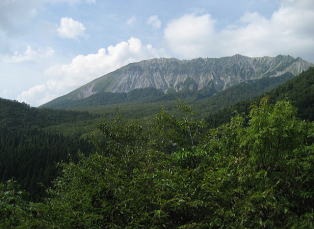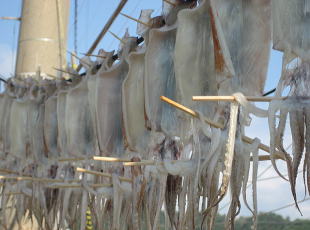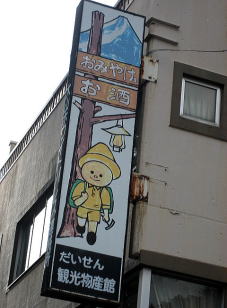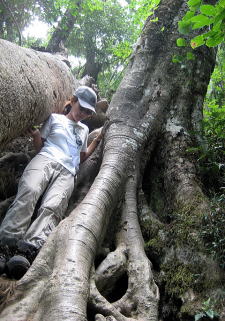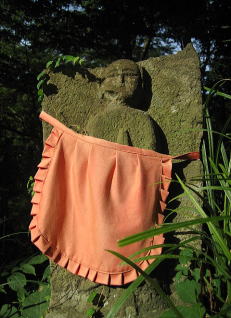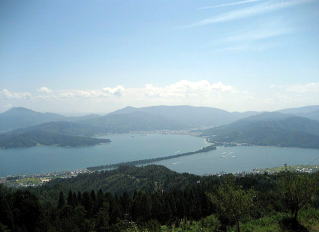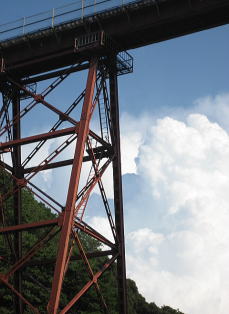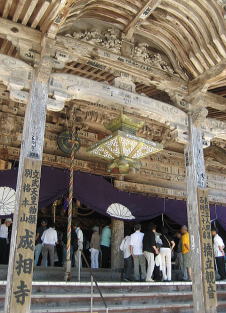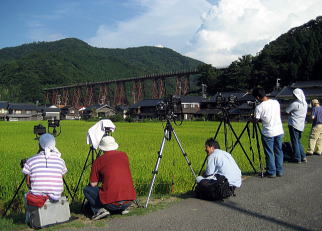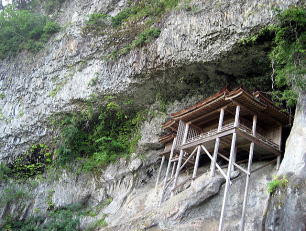Rugged southern face of Mt. Dai-sen, towering over the lush forest of beech.
After staying a night in Misasa spa, we paid a visit to San-butsuji, Temple of three Buddha.
The temple was inaugurated as a monastery of Tendai-sect in 706A.D. by
a high priest called Enno-Gyoh-Ja.
As we visited, they were having a ceremony commemorating its 1300years
of history. Amazing span of time for us the mortals.
From the temple's backyard a fine view of 'Amano-hashi-date', bridge of
heaven, can be enjoyed.
After almost a century, she needs to be replaced by a new bridge soon.
The construction is scheduled to kick off in spring '07. On this fine summer
day congregated quite a few train buffs.
'Ojizoh-san' is a stone carving that used to be made by local masons and
artisans all over the country. In so doing they utilized their liberal
imaginations of Buddha's image, therefore every one is unique, no twos
alike.
They are also the patron saint of children, equivalent of St. Nicholas a.k.a Santa Claus.
- Back
Carrying on, we made a detour to Mt. Dai-sen which, at an altitude of 1,709m,
is the tallest peak of Chugoku range.
Of course it's the grand scenery and cool breeze that attracts hikers and
holidaygoers, but look here, this pre-historic, ultra-simpleton painting
on a run-down souvenir shop appealed to my hyped-out senses greatly.
The road in the north of Tottori travels on a rugged coastline overlooking
the sea of Japan.
Passing through the small fisherman's villages along, you will see, and
even smell, our nation's good old days.
While the difference in climate is one thing, that of culture was just as evident.
Only a day's cruise in modern craft, but in the not too distant past there
was a world of distance separating the two worlds.
Back in Maizuru back in summer.
Braving the heat and the humidity,
we visited a nearby temple, Nariai-ji.

'06 Hokkaido in summer - 4Following the coastline further west, we made a stop at 'Amarube' train
flyover. The infamous accident in 1986, when a train, hit by a gust, fell
over the canyon is still remembered by many.
The flyover, whose original parts were manufactured in US and assembled
here in 1912, has always had a symbolic importance in our nation's railway
history.
The pilgrim's path is very steep and even adventurous. After some serious
hikes, which at times resembles tree climbing, we made our way to the 'Nageire-do',
housing the most important statue of the temple.
No one knows how they built it here - on the near vertical cliff!.
